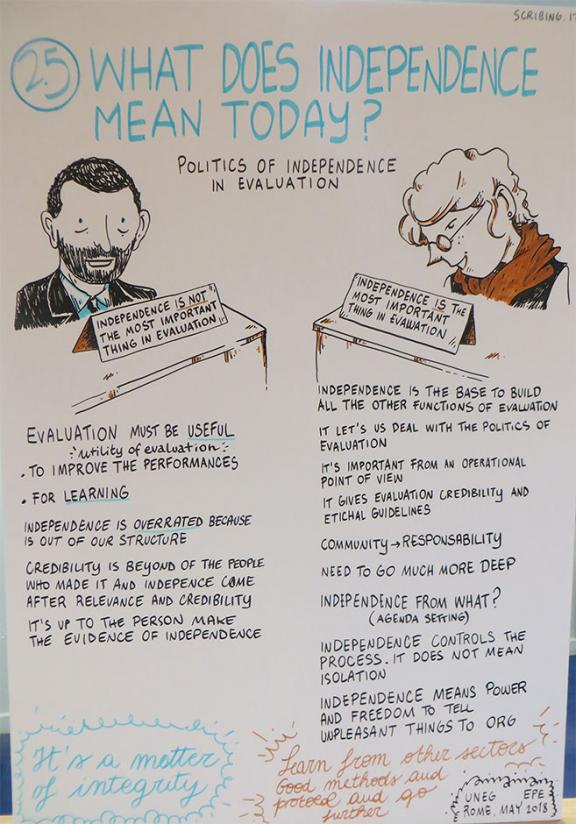Is independence important? IEU hosts debate at UNEG Evaluation Week
‘Independence - What does it mean today?’ This was the key question in a thought-provoking debate hosted by the IEU for this year’s United Nations Evaluation Group’s Evaluation Week. The Oxford-style debate asked two teams to debate the proposition "Independence is NOT the most important thing for evaluations." and was organized and chaired by IEU Head, Dr. Jyotsna Puri (Jo), and included representatives from UNDP Evaluation, UN Environment and WFP.
Team one, supporting the statement, argued that there are very few truly independent offices, most are embedded into their larger organisations. For those that have independent offices, it is legitimate to ask if the evaluation function is genuinely independent? They argued that it is extremely difficult for a truly independent evaluation function to succeed. Team one continued to say that it is more important to ensure good work is done, which makes the office credible. Moreover, to be effective, evaluations must ensure learning, engage users and build the ownership of organisations. This cannot be achieved if evaluators are regarded with suspicion. Being embedded, however, might make it easier to foster evaluation when the evaluator is not regarded as an outsider. Ultimately the key issue is about political independence not structural independence. And full political independence is probably never fully achievable. Team two, argued that independence is indeed the most important thing in evaluation today, claiming the best critical evaluations are those that are produced where they cannot be influenced by the surrounding institution. Importantly, independence allows evaluators to design rigorous evaluations. This is difficult to achieve when evaluators' perceptions are shaped by the politics of the institution they are embedded in. Team two acknowledged an independent evaluation team risked being isolated. But this can be resolved by ensuring the team has open access to organisations it is evaluating. Ultimately, what organisations want from evaluators is impartiality and credibility. Impartiality and credibility provide the space needed to “talk to power”.
Artist's impression of the IEU's debate. ©UNEG2018
The audience of 50 participants engaged actively with the debate. Views ranged from 'governments and donors don't really care about independence' and 'the key issue is trust' through to 'evaluation is about providing a judgment' and 'independence is about managing conflicts of interest'.
The IEU wishes to thank Dr Indran Naidoo, Director of the UNDP’s Independent Evaluation office, Dr Michael Spilsbury, Head of Evaluation at UNEP, and Ms Andrea Cook, Head of Independent Evaluation at WFP, for their participation in the debate.
By Greg Clough, Communications and Uptake Consultant